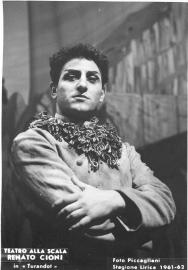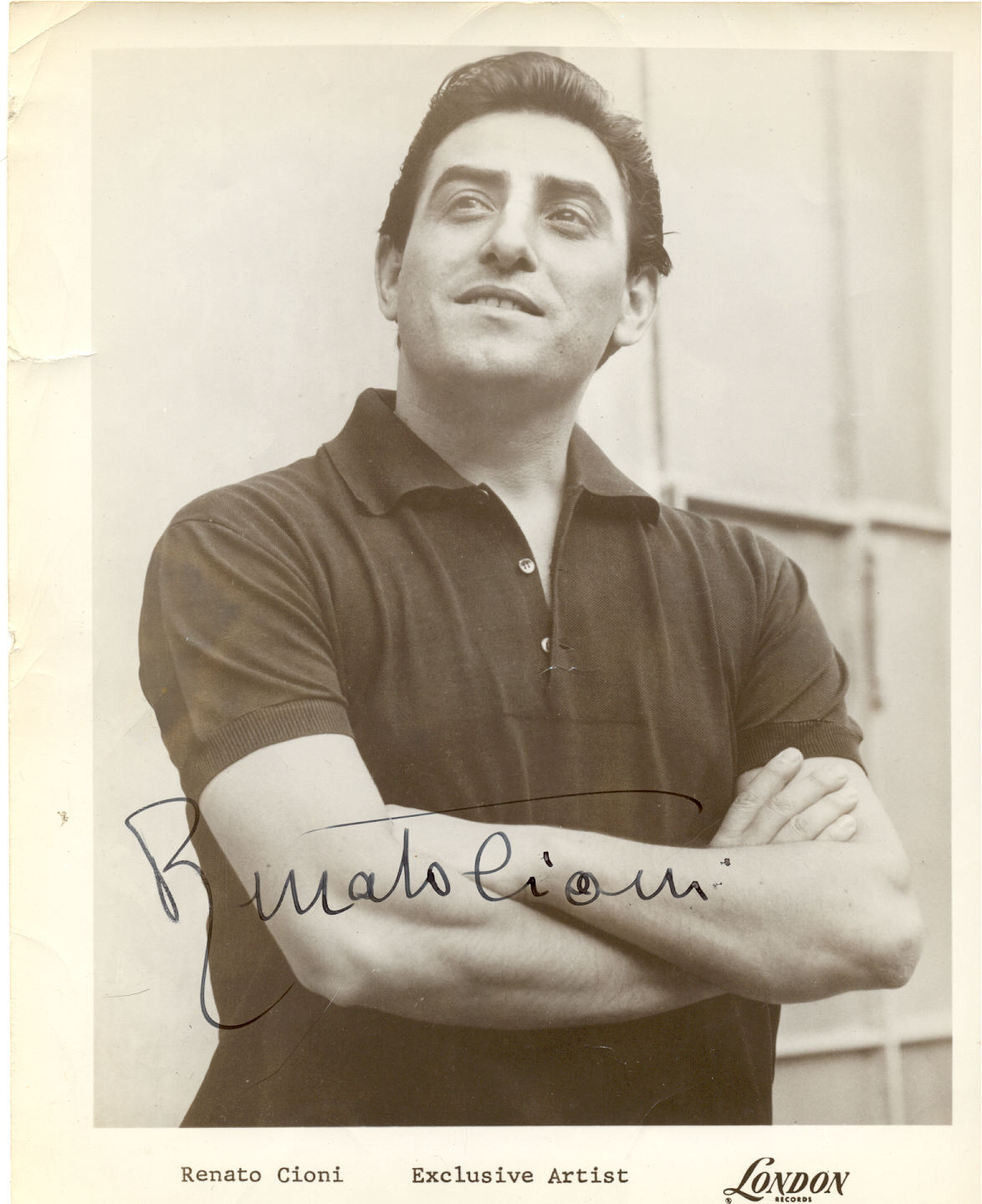Cioni was handsome and a good actor, but probably not the brightest of all tenors. The son of a
fisherman, he studied at the conservatories of Florence and Torino, but left after a few months on both occasions. Finally, he
took lessons from Renato Gigli in Rome, but again just for little more than two
months. Which means that he never allowed his voice to be properly trained. He made his debut in Spoleto in 1956, as Edgardo. A
TV production of Madama Butterfly with Anna Moffo made him instantly famous in 1957. A tour with Donizetti's unfinished
Duca d'Alba in 1959 (under the baton of Thomas Schippers) brought him to the US, where he made his San Francisco debut
the same year as Edgardo.
At the occasion of guest appearances at La Monnaie, he got to know Franco Zeffirelli, and through him, Joan Sutherland, whose
career was on a meteoric rise at that time. She chose Cioni as a partner for her complete recordings of Lucia di Lammermoor
and Rigoletto on Decca in 1961.
Earlier that year, Cioni had been at La Scala for the first time (as Pinkerton), and in summer of the same year, he went with
the troupe of the Teatro San Carlo (Naples) to
the Edinburgh Festival for Luisa Miller. After the first act, he was convinced the applause was all meant for him,
and wanted to take curtain calls all alone. Basso Paolo Washington disagreed, a fist fight ensued, and Cioni sang the rest of
the opera with a broken nose.
In 1962, he made his debut at Covent Garden, where in 1964 his career peaked in a much lauded Tosca production with Callas and
Gobbi. But before long, Cioni paid the price for never having properly studied. By the time he made his Met debut in 1970, his
voice and career had already gone south; he sang six performances as Pollione, five on tour and just one at the Met proper.
He returned to La Scala once more, in 1975, as Števa. In 1979, he sang with a touring operetta troupe (Die lustige
Witwe and Die Csardasfürstin, both in Italian), and also at the opera theater of Tours. A concert in Finale
Ligure in 1980 may have been his last
appearance: as per the account of one of the few spectators, Cioni was unprepared, hoarse, arrogant – and when his voice
disobeyed, he simply left in the middle of his second aria, without saying goodbye, and left his soprano partner alone with the
audience, all of them stack-jawed.
Reference 1, reference 2, reference 3, reference 4

